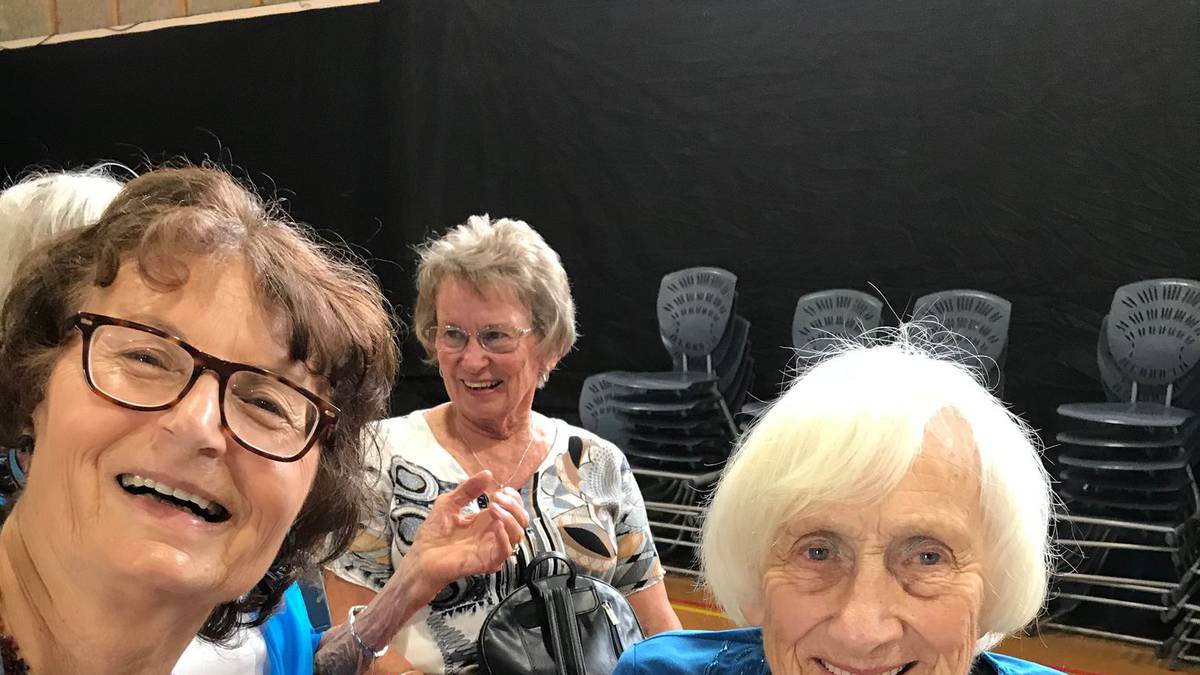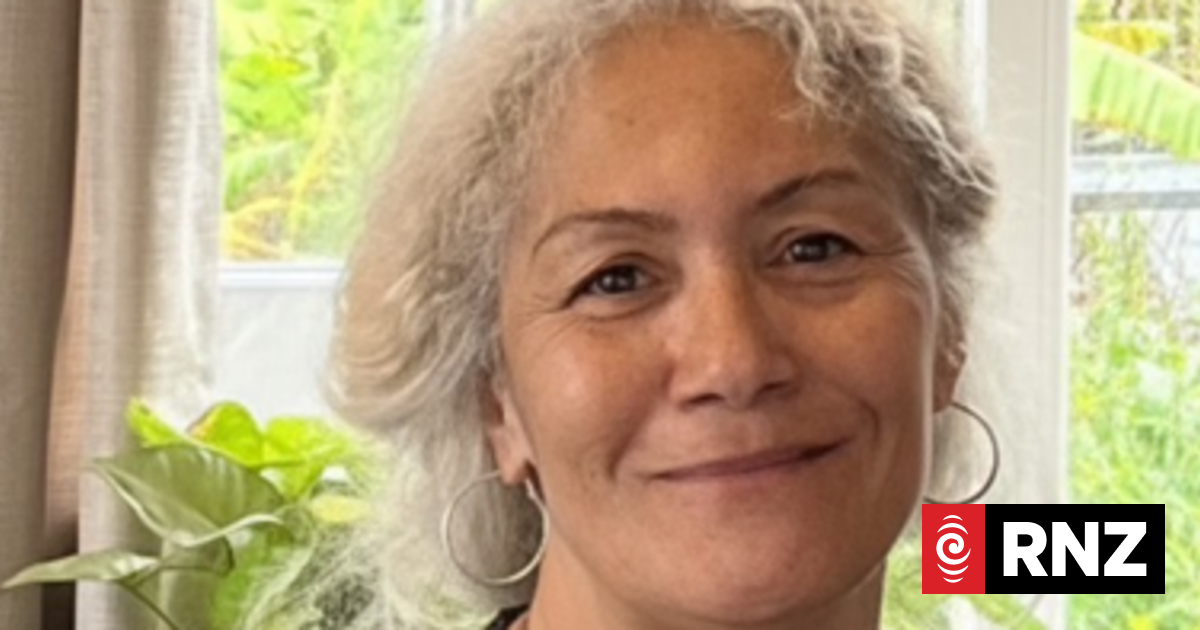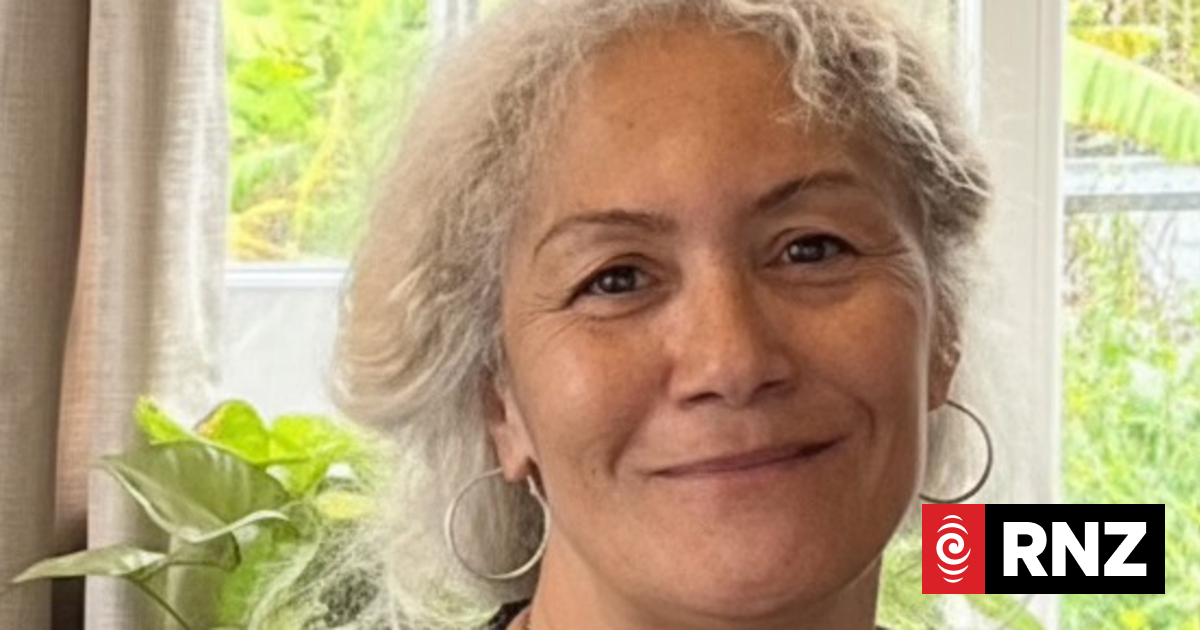Betty Hooper, right, with friend Theodora Nicholas when the latter received a Civic Award. Photo / Supplied
Northland centenarian Betty Hooper has breathed her last but her work around the treatment of children diagnosed with Attention Deficit Disorder and Attention Deficit Hyperactivity Disorder and their learning will continue.
The 103-year-old died at the Bupa Merrivale Care Home’s hospital facility on March 21 following an infected aortic aneurism and was cremated in Maunu the next day.
A group of friends who’ve been by her side over many decades is organising a memorial service and a celebration of her life at the Hikurangi Memorial Hall tomorrow afternoon — a well-lived life where she skydived at 88 years of age and regularly drove to Whangārei and to the markets in the Bay of Islands even after turning 100.
Her friend Theodora Nicholas and others wish to start a Betty Hooper Foundation to support learning-challenged children and students and write her biography of an extraordinary and diverse woman.
Advertisement
Hooper was not on prescription medication, preferring homoeopathic options, and the only medical substance she had in her rented Hikurangi house was Panadol.
She was born Lily May Ginn on February 7, 1920, on the brick floor of her grandfather’s farmhouse and delivered by a gypsy woman, in Fairlight village in East Sussex, England.
Hooper has had a love of children all her life, even though she had none of her own.
Her dream was to become a teacher, a talent that was recognised when she was a teenager.
Advertisement
She had an interest in arts from a young age but always wanted to be a teacher.
In 1968, Hooper came to New Zealand on a ship, first class with her husband, Joe, and her mother, who turned 80 during the voyage, their three cats and one dog.
It was a merchant sailor in England who spoke of warm climes in northern New Zealand – “warm enough to grow grapefruit” – that convinced them to move to a new land across the ocean.
/cloudfront-ap-southeast-2.images.arcpublishing.com/nzme/2TOIBCGWOVGTPKTMPKJK3SJPMY.jpg)
Making their home in Western Hills Drive, Whangārei, they bought a goat to keep the lawn down but soon saw potential in making a living from milking goats.
Tragedy struck in 1974 when her husband died suddenly before the couple could build up the goat farm they had planned. Eventually, Hooper did create a farm, becoming the first person in Northland with a permit to sell raw goat milk.
But all along she was learning more about food-related health and behavioural problems.
Her work with special needs children stimulated interest in how good nutrition, or lack of it, affects children’s health and ability to learn.
/cloudfront-ap-southeast-2.images.arcpublishing.com/nzme/YQYRQYGPGRGI5BAFXUOQK2DBNE.jpg)
For more than 25 years, Hooper collected evidence relating to the treatment of children diagnosed with Attention Deficit Disorder and Attention Deficit Hyperactivity Disorder.
Her friend Theodora Nicholas said Hooper wanted her body donated to science, not cremated or buried, but since Auckland was only taking bodies from that region and Dunedin was too far away, she had to be cremated in Whangārei.
“Having had such a long life, she was the most extraordinary woman I have ever met. She didn’t get sick very often which explains her good health.”
Advertisement
In May last year, she slipped and broke her upper femur and had a hip operation. Doctors detected she had abdominal aortic aneurism after a fall in 2021 which remained untreated.
Nicholas said apart from auctioning Hooper’s belongings, she and other friends also planned to put her silk painting on cards and sell them.
Hooper received a civic award from then Whangārei Mayor Sheryl Mai in 2020.
Hooper was passionate about giving less fortunate children potential opportunities to develop. At Hikurangi Primary School, she has helped pupils over the years who have found reading difficult by giving them one-on-one lessons.
In New Zealand, she worried about children in poverty.




